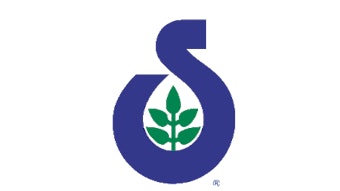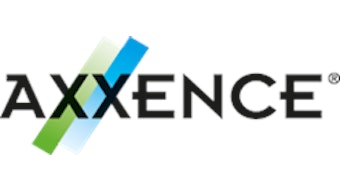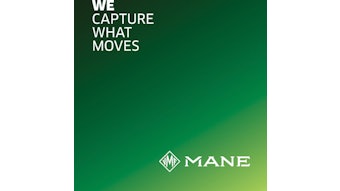Symrise reported a group sales increase of approximately 2% at local currency for the first nine months of 2011, as well as achieving its targeted EBITDA margin (at 20.1%) despite a further economic slowdown in the third quarter and sustained high raw material prices. Also, in certain regions Symrise discontinued selective activities with low margins and continued strict cost discipline throughout the company. The flavor business, as well as activities with global customers, significantly contributed to this growth, and emerging markets continued to provide positive results.
Heinz-Jürgen Bertram, CEO of Symrise AG, said, “The market dynamics have continued to slow in the third quarter due to weaker economic prospects and continuing tension on the raw material and foreign exchange markets. We made notable gains in our business with global customers. At the same time, however, we saw customers returning to more careful order patterns in certain regions and sectors. To secure our profitability on a long-term basis we continued to focus our business on profitable activities during the third quarter. We aim to growing, however, not at the cost of our earnings power. We do not expect volatility to decline in our markets until the end of the year. Accordingly, securing our strong profitability takes first priority. From today’s point of view and despite the current macroeconomic challenges we continue to be confident that we will achieve an EBITDA margin of 20% for the full year of 2011. After using this year to consequently focus on optimizing our earnings, we are well prepared for various economic scenarios that may occur in the coming year.”
In the first three quarters of 2011, Symrise generated group sales of €1,206.3 million (previous year: €1,207.7 million). This corresponds to an increase of about 2% at local currency. Symrise increased sales in emerging markets by about 2% and generated 46% of its total sales in those markets. In the EAME region, Symrise posted sales gains of 2%. At the same time, sales growth in the Asia/Pacific region was moderate at 2%, mainly due to portfolio optimizations. In Latin America, sales development remained behind the above-average growth rates seen last year with a gain of 1% (3% at local currency), although sales in this region also reflect the conscious decision to discontinue less profitable activities. In North America, sales decreased 8% compared to the strong prior-year-figures, which is mainly due to negative exchange rate effects, as well as reserved consumer sentiment in the region. At local currency, the decline in sales amounted to 1%.
Both the company's divisions took advantage of their strong position as core suppliers to international food and consumer goods manufacturers and further expanded their business with those key customers. The scent and care increased sales in this customer segment by 4% while the flavor and nutrition division posted sales gains of 7%. In total, Symrise increased sales with global customers by 5%. The segment accounted for 31% of company sales. However, Symrise’s earnings situation was negatively affected by sustained high raw material costs and volatile exchange rates in the first nine months of 2011. To counteract these burdens, Symrise focused on strict cost management throughout the entire company and on a conscious discontinuation from activities with weak margins.
Compared to the prior year period, which was characterized by catch-up effects, sales in the scent and care division declined to €609.7 million in the reporting period (previous year: € 621.8 million). The sales development reflects the discontinuation of less profitable orders. Additionally, lower demand in consumer-related areas, such as luxury perfumes, were noticeable in the results. However, scent and care continued its positive growth trends in the life essentials, aroma molecules and oral care application areas. In the menthol business, Symrise achieved double-digit growth. The application area of cosmetic ingredients posted considerable growth as well, particularly in the emerging markets. In Latin America, sales developed at a more moderate pace after experiencing very dynamic growth in the previous years. The scent and care increased sales in the region by 3% at local currency. In Asia/Pacific, the division managed a slight gain of 1%. The comparably lower growth rate is mainly due to portfolio pruning and exiting low-margin business activities. After the strong growth realized last year sales in the EAME region decreased by 2% during the reporting period. Sales in North America remained stable. EBITDA for the division totaled € 117.3 million (2010: €131.2 million).
Symrise's flavor and nutrition division grew sales by about 2% to €596.6 million (previous year: €586 million) during the first nine months of 2011. At local currency, this corresponds to an increase of 3%. The strongest region in terms of growth was EAME, with solid demand in all of the important country markets and a jump in sales of 6%. Beverage applications and consumer health developed particularly well in this region. In comparison to the strong performances seen in the previous year, Asia/Pacific and Latin America generated more moderate growth with each region posting a growth of 2% at local currency. Selective portfolio optimizations had an effect on both regions. In Latin America Symrise benefited particularly from solid demand for savory applications and citrus products. The ongoing reserved consumer sentiment in North America led to a sales decline of 4% at local currency. EBITDA amounted to €125.3 million (previous year: €136.5 million).
Symrise remains confident to largely achieve its targets for fiscal year 2011. Based on the results of the first nine months, the company’s management board reaffirmed the goal of achieving an EBITDA margin of 20% for the full year. For the current fiscal year Symrise aims at increasing sales by around 2–3% at local currency. In view of the short-term volatility seen in important sales markets, the company has placed the focus on profitable growth. Thus, Symrise consciously declined business in certain cases to avoid diluting its earnings power. Should the global economy improve in the coming year, Symrise will use its strengths to accelerate its profitable sales growth. Should the economic environment continue to deteriorate, Symrise will be positioned to assert its profitability.









